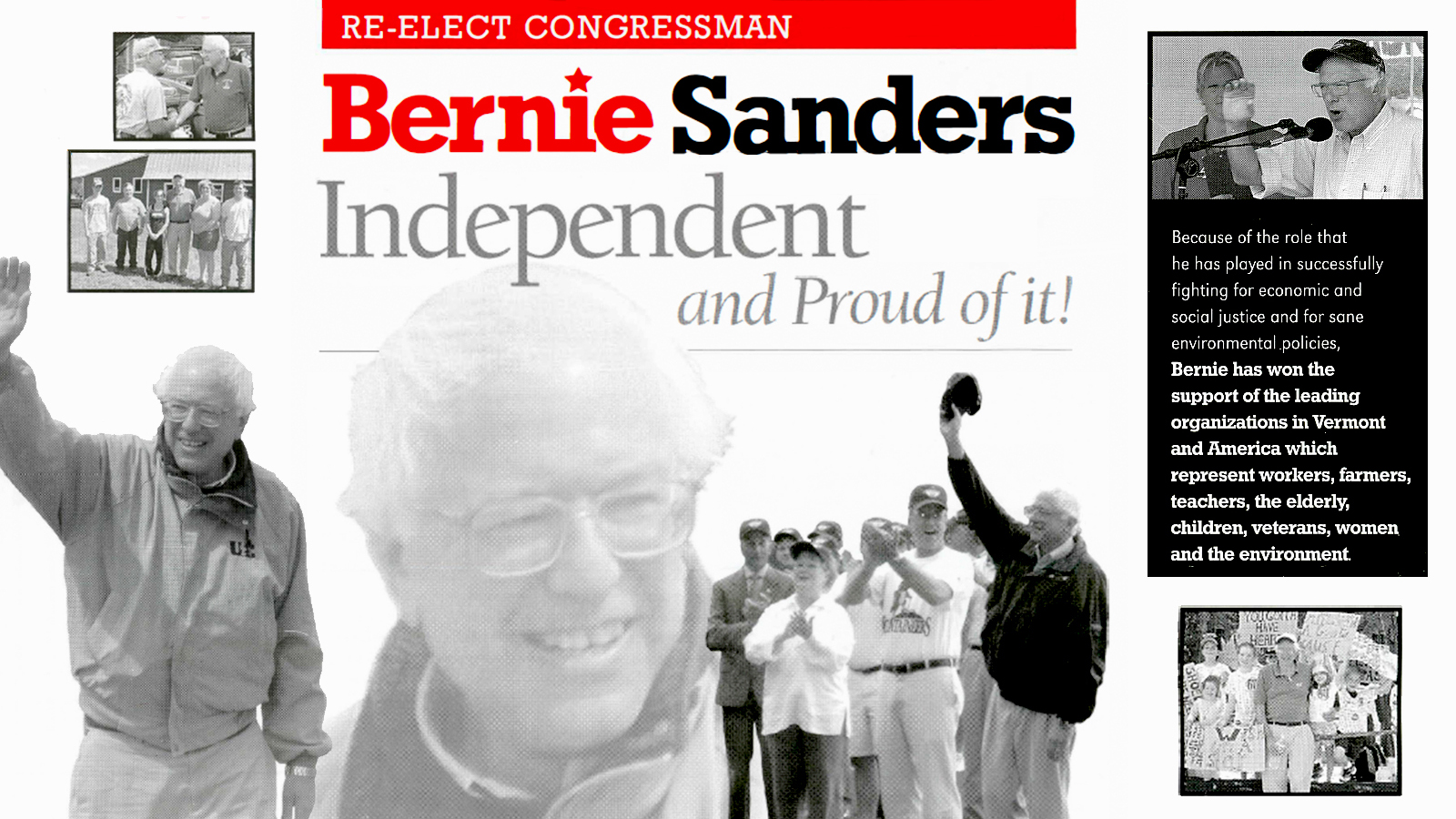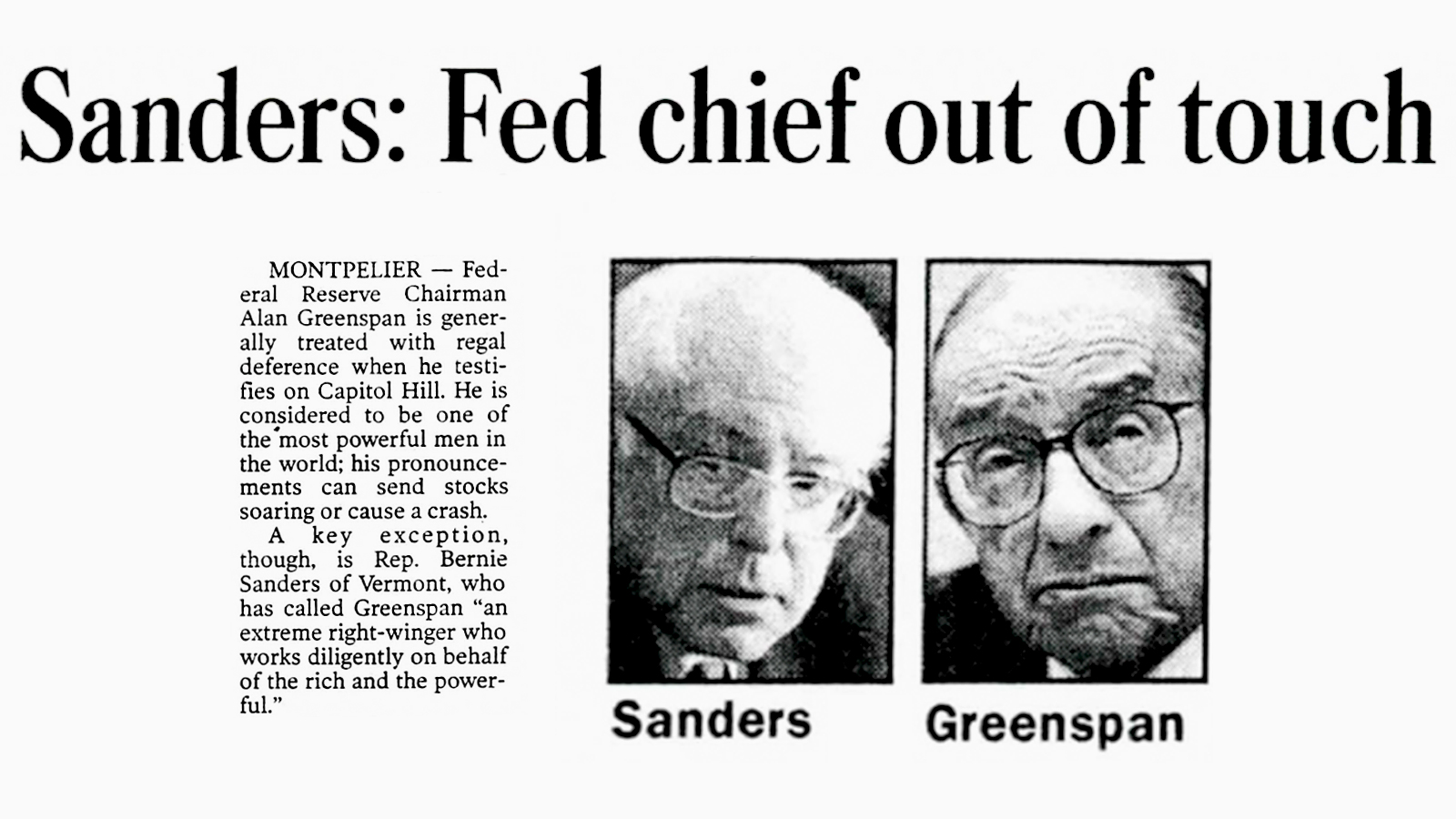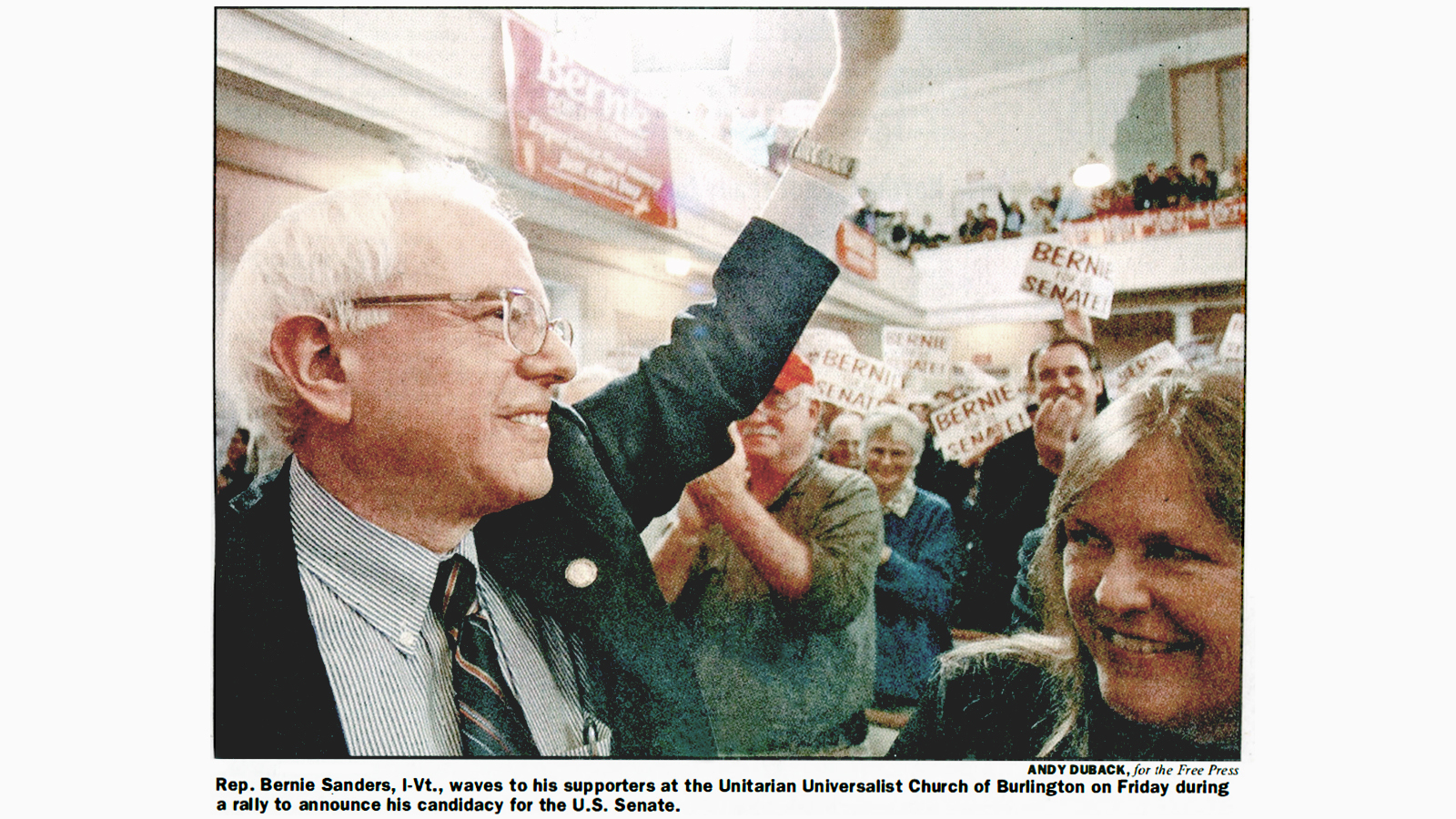In 2004, Bernie Sanders won his eighth reelection with 67 percent of the vote. At the onset of his campaign, Bernie vowed to focus on increased voter participation in politics, to organize 100 rallies, and engage 10,000 citizens in the political process.[1]
“I want us to register a substantial number of Vermonters who have never voted before,” said Sanders. ‘We want to make everybody in Vermont, regardless of political beliefs, aware that politics is extraordinarily important to their lives.”[1]
Under President Bush, the middle class had continued to shrink, with poverty increasing and the average American working longer hours for lower wages and salary. Good-paying jobs were increasingly outsourced to India and China. Additionally, fewer and fewer large corporations and wealthy individuals controlled more and more of the country’s economic and political life.[2]
“Politics are how we resolve issues,” he added. “This year, we need to work hard to reverse the shrinking of the middle class, to change the fact that the average Vermont voter and Americans are working longer for lower wages. We are losing too many good-paying jobs, and we don’t have a good healthcare system.”[2]
The GOP candidates running against Bernie, Greg Park, a retired military aviator from Rutland, and Robert Anderson, a personnel and leadership consultant from Stowe, were going up against the independent incumbent’s record of success in Washington, his popularity with Vermonters – and his significant war chest. According to Federal Election Commission filings, when the election began, Bernie had $657,000 in the bank, and his campaign had no debt, nor had it taken out any loans.[1]
Bernie cited his receipts as Vermont’s sole U.S. representative for the past seven terms, including expanding health and dental care access throughout Vermont, saving pensions and family farms, protecting the needs of veterans and our environment, and lowering the cost of prescription drugs.[2]
 Back to Timeline
Back to Timeline


